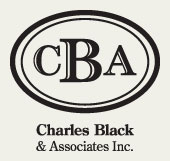WORKSHOP
Industrial Electrical Field Devices and Troubleshooting
Course Description |
IEIFD is a 24 hour workshop that builds on the principles taught in Fundamentals of Industrial Electricity. This workshop begins with a review of Safety and Ohms Law, and the basics of industrial wiring. Participants then learn the principles of industrial control devices including switches, output devices, electronic devices, meters, and transducers. We will focus on how these devices get the process information to the PLC, and finally, the participants will analyze their schematics to determine basic troubleshooting strategies. |
Topical Outline |
Electrical Safety
Basic Electrical/Industrial Electrical Review
Industrial Controls
Advanced Electrical Schematics
|
Course Requirements |
Company must provide detailed company specific or vendor schematics for training. Participants are also asked to bring their own Multimeters to use in accompanying exercises. Any plant specific devices that are of particular concern should be provided to be used as training aids and for discussion with technicians. |
